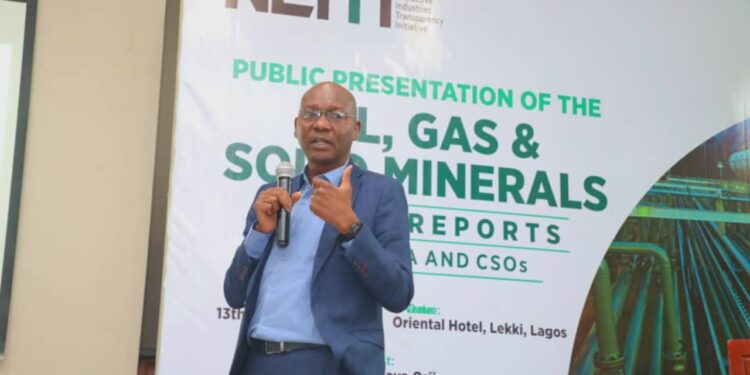The Nigeria Extractive Industries Transparency Initiative (NEITI) has released its latest report on the Federation Account revenue allocations for the first half of 2023, revealing that a total of N4.37 trillion was shared among the three tiers of government in the country between January and June 2023.
NEITI’s Executive Secretary, Dr. Orji Ogbonnanya Orji, disclosed this information during a press conference in Abuja. The report indicated that the Federal, State, and Local Government Councils (LGs) received N2.32 trillion in the first quarter and N2.04 trillion in the second quarter of 2023 as distributable FAAC allocations.
In the second quarter of 2023, inflows into the Federation Account dropped by 23 percent compared to the previous quarter, resulting in a 12 percent decrease in distributable revenue. Despite this decline, each tier of government received more than N1 trillion in allocations over the six-month period.
A breakdown of the revenue distribution showed that the federal government received N1.78 trillion, constituting 40.7 percent of the total, while State governments received N1.5 trillion, or 34.5 percent. Local government councils received N1.08 trillion, representing 24.8 percent of the total distributable revenue for the period.
Comparing the total allocations on a year-on-year basis between the corresponding quarters of 2022 and 2023, the report highlighted a 16.7 percent increase in the distributable revenue, reaching N4.366 trillion in 2023, compared to N4.05 trillion in 2022.
During the same period, allocations to the federal government increased by 19.8 percent to N1.78 trillion in 2023, State governments saw an 11.2 percent growth to N1.42 trillion, and Local government councils experienced a 16.8 percent rise to N1.08 trillion.
This upward trend in allocations for the first half of 2023 continued from the previous year, where the distributable revenue rose by 16.7 percent, from N3.47 trillion between January and June 2021 to N4.05 trillion in the corresponding period in 2022.
The report emphasized that the bulk of the revenues in the Federation Account came from remittances by major revenue-generating agencies, including the Nigeria Upstream Petroleum Regulatory Commission, the Federal Inland Revenue Service (FIRS), and the Nigeria Customs Service (NCS). These remittances included earnings from various revenue streams such as oil and gas royalties, petroleum profit tax, company income tax, value-added tax, and import and excise duties.
However, it also highlighted a significant gap between revenue disbursements from the oil and gas sector and the solid minerals sector, reflecting the perennial underperformance of the latter.
The report identified the top five states that received the highest allocations in the second quarter of 2023: Delta state (N102.79 billion), Akwa Ibom (N70.01 billion), Rivers (N69.73 billion), Lagos (N60.64 billion), and Bayelsa (N56.34 billion). Together, these five states received 35.9 percent of the total FAAC allocations, surpassing the combined allocations of the next 15 states (N349.3 billion). The bottom 10 states received only 17.3 percent of the shared revenue.
Regarding debt service obligations, Lagos topped the list with a total deduction of N9.03 billion in the second quarter of 2023, followed by Delta (N6.76 billion), Ogun (N6.10 billion), Kaduna (N5.63 billion), Osun (N5.60 billion), and Imo (N5.51 billion). Conversely, Jigawa, Anambra, Nassarawa, Kebbi, and Enugu States had the lowest deductions.
NEITI projected that efficient management of the N3.6 trillion saved from subsidy payments in the first half of 2023 could boost Nigeria’s balance of payments by reducing demand for imported petroleum products. The report welcomed the unification and floating of the exchange rate policy as a means to strengthen and stabilize the economy, with expectations of increased export earnings and foreign capital inflows.
The report called on the Central Bank of Nigeria to prioritize policies that stabilize the exchange rate, facilitating the effective implementation of deregulation policies and stabilizing foreign exchange-dependent inflows into the Federation Account.










